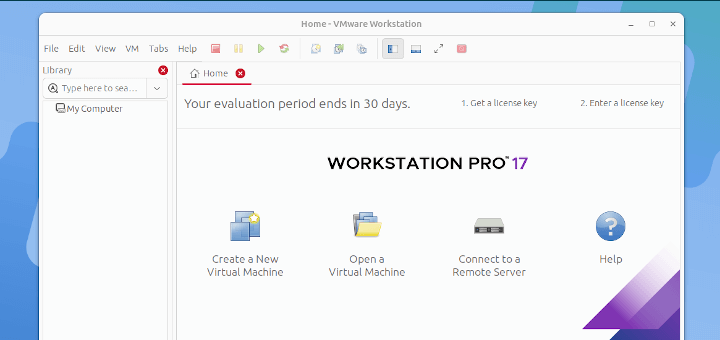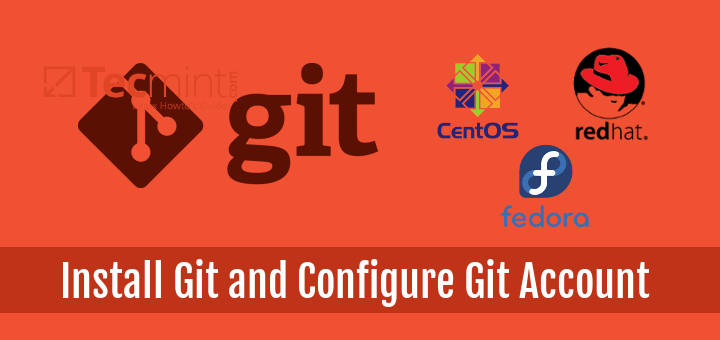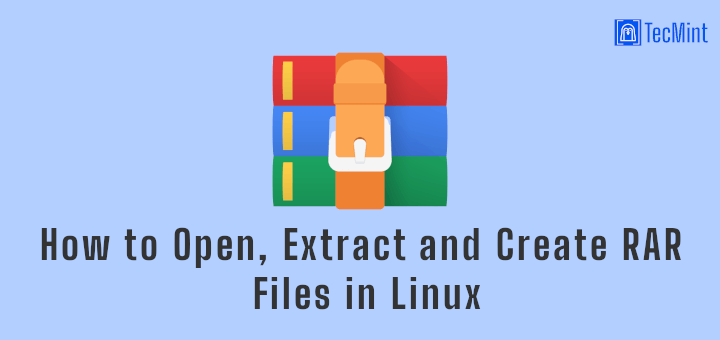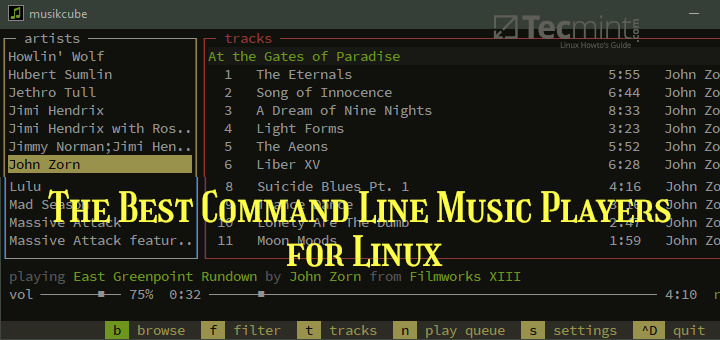In many cases, people hesitate to switch from Windows to Linux because they fear that they won’t get an appropriate set of programs and apps to perform their day-to-day tasks. Moreover, there is a general perception according to which:
[ You might also like: How I Switched from Windows 10 to Linux Mint ]
“A Paid service or a paid project would be more reliable as compared to a project that falls under the category of FOSS (Free and Open Source Software)”.
If that were true, perhaps there would not be a project named Linux today and you would not be reading this post right now. Only true GEEKS know that there are alternatives to almost all the projects that are available for Linux and even more than that.
- The Best Microsoft Excel Alternatives for Linux
- 12 Most Used Microsoft Office Alternatives for Linux
- The Best PowerPoint Alternatives for Linux
- The Top 5 Open-Source Microsoft 365 Alternatives for Linux
- 12 Best Notepad++ Alternatives For Linux
The alternatives below are more reliable, less buggy, more secure, easy to upgrade, and easy to install. They have a huge amount of fans among users and don’t crash as often as their Windows equivalents. Get ready to change the prevailing perception while reading this article.
1. Microsoft Office
If you have experience in working on Windows, you are definitely familiar with Microsoft Office. This is an office suite that is used to create or edit a formatted text document, spreadsheet, or presentation.
However, you have to buy Microsoft Office separately because this office package doesn’t come with the Windows OS. The best alternatives to Microsoft Office are LibreOffice and ONLYOFFICE Desktop Editors.
LibreOffice
LibreOffice is an open-source office suite developed and maintained by a big international community. It contains all the required plugins like the built-in PDF converter to make it easier to work with documents of different types, does not crush too often, and comes as the default office suite in many Linux distros (e.g., Debian).
LibreOffice is based on the Open Document Format for Office Applications (ODF), so a file created in MS Office could be opened and/or edited in LibreOffice but not vice versa. Despite this, LibreOffice is the choice of many Linux users due to a wide range of editing features and more than 115 languages available.
ONLYOFFICE Desktop Editors
ONLYOFFICE Desktop Editors is another open-source Microsoft Office alternative for Linux. Like LibreOffice, this office suite is free and runs on all major Linux distros.
Its native format is OOXML, so ONLYOFFICE Desktop Editors seamlessly opens and saves any Word, Excel, and PowerPoint files while being compatible with other popular formats too.
ONLYOFFICE Desktop Editors also come with a wide range of third-party plugins (YouTube, translators, etc.) and can be used for collaborative work via integration with Nextcloud, ownCloud, and Seafile. Once connected to one of these platforms, ONLYOFFICE allows you co-edit files with others in real-time.
What distinguishes ONLYOFFICE from other alternatives is its security features. Not only can you protect your documents with passwords and add digital signatures right in the app but you can also collaborate on encrypted files via Private Rooms. This functionality works if you connect the desktop app to a self-hosted instance of ONLYOFFICE Workspace deployed on your Linux machine.
Alternatively, you can try other office suites like OpenOffice, AbiWord, WPS Office, SoftMaker FreeOffice, etc.
All of them are available for Windows too. However, MS Office is not supported in Linux but you can certainly use Wine to install it on Linux. It’s the power of Linux, isn’t it?
2. Windows Notepad
Windows Notepad is another default program that is available in the Windows OS. It is a fast and simple word processor that is a must-have if you work a lot with simple texts.
Some of the best alternatives to Notepad for Linux are the following:
- Download gedit: http://projects.gnome.org/gedit/
- Download jEdit: http://www.jedit.org/index.php?page=download
- Download Kate: http://kate-editor.org/get-it/
- Download leafpad: http://tarot.freeshell.org/leafpad/
- Download NEdit: https://sourceforge.net/projects/nedit/
- Download Scribes: http://scribes.sourceforge.net/download.html
- Download tpad: http://tclpad.sourceforge.net/download.shtml
[ You might also like: 23 Best Open Source Text Editors (GUI + CLI) for Linux ]
3. Microsoft Edge Browser
Internet surfing is the most widely used task one performs using a computer. Windows ships its OS with Microsoft Edge as the default browser. Before saying anything about Microsoft Edge, one quotation that is too hilarious and commonly shared is “Microsoft Edge is the best browser available to download another browser”.
You will rarely find anyone using Microsoft Edge even on the Windows platform (I fear if Bill Gates himself is using another browser for his personal computing). The alternatives to Microsoft Edge are Firefox, Chrome, and Opera.
According to users’ needs, these alternative browsers are highly customizable and support several plugins and when it comes to security, Microsoft Edge is far behind, although it gets better with each new update.
Other reliable alternatives are Epiphany, Konqueror, Opera, Tor Browser, etc.
- Download Firefox: https://www.mozilla.org/
- Download Chrome: https://www.google.com/chrome/
- Download Opera: https://www.opera.com/
- Download Epiphany (GNOME Web): https://gitlab.gnome.org/GNOME/epiphany
- Download Konqueror: https://apps.kde.org/konqueror/
Most of them are available for Windows too and some of them are even available for Mobile Devices.
[ You might also like: 16 Best Web Browsers I Discovered for Linux ]
4. Microsoft Outlook
Microsoft Outlook is a program that’s mainly used to send and receive emails. However, it can also be used to manage various tasks, including calendar appointments, contacts, notes, etc. Microsoft Outlook isn’t free, as you need to purchase it or pay a subscription.
Probably, the best alternative to Microsoft Outlook for Linux is Thunderbird. It’s an open-source cross-platform e-mail client that is available for free. Thunderbird supports the POP and IMAP protocols and comes with excellent mail filtering and management features.
Some other alternatives to Microsoft Outlook for Linux desktop are:
- Download Mailspring: https://getmailspring.com/
- Download Geary: https://wiki.gnome.org/Apps/Geary
- Download Mutt: http://www.mutt.org/
- Download Trojitá: http://trojita.flaska.net/
5. Microsoft Teams
If you think that Microsoft Teams is exclusively designed for corporate communication and collaboration within big teams, that’s not exactly true. It also works quite well for personal purposes, and you can use this app for audio and video conferencing, chatting, calendaring, and file stores.
When looking for a Microsoft Teams alternative, you can try several options with Jami being the best app, probably. It’s an open-source cross-platform for video/audio calls and messaging that uses advanced encryption and doesn’t require a server to transfer data between users.
[ You might also like: How to Install Microsoft Teams on Linux ]
Try other alternatives to Microsoft Teams for Linux:
- Download Jitsi Meet: https://jitsi.org/jitsi-meet/
- Download Signal: https://signal.org/
- Download Element: https://element.io/
6. Adobe Photoshop
Why should one use a program that is too high on the processor as well as money and when the Foss alternative of the software is low on the processor and provides you with more tools and is very easy to use. Gimp is a very nice alternative to Adobe Photoshop.
Gimp is written in C and GTK+ and Photoshop in C++ which makes photoshop a nice tool but its constraint is being a close source program that costs too much on cost and processor load. Gimp comes packed with almost all the distros.
[ You might also like: How to Install GIMP in Ubuntu and Linux Mint ]
Other alternatives are CinePaint, Gimp, Darkable, and RawTherapee:
- Download Gimp: http://www.gimp.org/downloads/
- Download Darktable: https://www.darktable.org/
- Download RawTherapee: https://www.rawtherapee.com/
- Download CinePaint: https://sourceforge.net/projects/cinepaint/
Gimp can be installed on Windows, too.
7. MS Paint
Microsoft Paint is another tool that comes bundled with the Windows box. However, there are some similar tools that run on Linux. One of them is MyPaint, an easy-to-use and fast painting program that allows you to make the most of the full-screen use.
Other great alternatives that are worth giving a try are KolourPaint, Pinta, and Tuxpaint.
8. Nero Burning ROM
Nero provides tools for burning an optical disk. There lies a much stronger reason to find an alternative software of Nero. Firstly, Nero is not supported in Linux followed by Nero makes the Drive and Disk freeze. Secondly, it is closed source and it costs too high on the purse.
Brasero is a very nice alternative to Nero. Brasero is a free, open-source tool, the output of which is very reliable.
Other alternatives of Nero are:
- Download Brasero: https://wiki.gnome.org/Apps/Brasero
- Download K3b: http://www.k3b.org/
- Download Xfburn: https://gitlab.xfce.org/apps/xfburn
- Download X-CD-Roast: http://www.xcdroast.org/
- Download Gnomebaker: https://sourceforge.net/projects/gnomebaker/
9. Microsoft Windows Media Center
A PC entertainment system that comes with Windows 7 and later, although it is not available for Windows prior to Windows7. It requires a high-end graphics card for full functionality and results in Windows freezing often. Why don’t you try the alternative of this, without any constraints and walls, and tell us your experience?
Alternatives of Microsoft Windows Media Center are:
- Kodi Download: https://kodi.tv/
- Plex Download: https://www.plex.tv/
- MediaPortal Download: https://www.team-mediaportal.com/
- Emby Download: https://emby.media/
- Download Universal Media Server: https://www.universalmediaserver.com/
[ You might also like: 10 Best Media Server Software for Linux ]
10. Windows Media Player
Windows Media Player is shipped with the Windows OS, but the same look and feel for years, frequent resulting in BSOD (Blue Screen Of Death), bugs, and poor codec support are the drawbacks of Windows Media Player.
VLC is a very pleasing alternative for Windows Media Player and all other media players for all the platforms. VLC gets frequent updates, resulting in fewer bugs, plenty of codecs support, and a sneak look.
Another good option to consider is Clementine, a cross-platform open-source music player with a fast and intuitive interface.
In a nutshell, the best alternatives of Windows Media Player are:
- Download VLC Player: http://www.videolan.org/vlc/#download
- Download Climentine: https://www.clementine-player.org/
- Download KPlayer: http://kplayer.sourceforge.net/#downloads
- Download Mplayer: http://www.mplayerhq.hu/design7/dload.html
- Download Xine: http://www.xine-project.org/releases
There are certain fancy media players that can run from the terminal, giving you a Geeky feeling viz., CMUS.
[ You might also like: 16 Best Open Source Video Players For Linux ]
11. Windows Movie Maker
Many newbies believe that Linux is too Geeky thing and perhaps there is no support for high-quality video editing. So they appraise Linux Environment for their Geeky productivity environment but when it comes to video editing, they see towards either Windows or Mac. Cinelerra is the most advanced alternative to Windows Movie Maker.
Other alternatives of Movie Maker are:
- Download Cinelerra: http://cinelerra.org/
- Download Kdenlive: https://kdenlive.org/en/
- Download LiVES: http://lives-video.com/
- Download Open Movie Editor: http://www.openmovieeditor.org/
- Download OpenShot: https://www.openshot.org/
- Download PiTiVi: https://www.pitivi.org/
- Download VideoLAN Movie Creator: https://code.videolan.org/videolan/vlmc
[ You might also like: 8 Best Video Editing Softwares I Discovered for Linux ]
12. Partition Magic
Partition Magic is a tool for creating or repartitioning a mass storage device or block. Ok, if you don’t know about the alternative of this closed source software then give a look at these alternatives, you surely will love the power provided to you with these Foss software.
One of the best options is KDE Partition Manager, an open-source utility program designed for managing disk devices and file systems on a Linux desktop. It makes it possible to create, copy, move, delete, backup, and restore disc partitions.
- Download KDE Partition Manager: https://apps.kde.org/partitionmanager/
- GParted Download: http://gparted.sourceforge.net/download.php
- Palimpsest Download: http://library.gnome.org/users/palimpsest
- Partimage Download: http://www.partimage.org/Download
- QtParted Download: http://qtparted.sourceforge.net/download.en.html
[ You might also like: Top 6 Partition Managers (CLI + GUI) for Linux ]
13. utorrent
A general user comes across torrent download most often, when in a closed source, Utorrent could be a good option but certainly there exist a better plan. Try Transmission, qBittorent, Deluge, or WebTorrent.
[ You might also like: 10 Most Popular Download Managers for Linux ]
14. Adobe Acrobat Reader
To view a Portable Document File, a Windows user must have Adobe Acrobat Reader installed in their system. Well, if you have used the above, you might be aware that Adobe for no reason prompts you to download and install updates every second day, and you have the same software from the first day you installed to the day you installed the 100th update.
Moreover, it provides you with the feature only to view the portable file. Just move your sight from proprietary software to Foss and give a try to the below-mentioned packages. At least one of them comes with almost every Linux distribution pre-built and installed.
- Download Evince: https://wiki.gnome.org/Apps/Evince
- Download Okular: https://okular.kde.org/
- Download Xpdf: http://www.xpdfreader.com/
- Download zathura: https://pwmt.org/projects/zathura/
- Download MuPDF: https://mupdf.com/
This is the power and popularity of Linux that a FOSS Project has several Alternative Foss Project. So our competition is not with other platforms but within the same platform, giving a choice of use without any bottleneck. This healthy competition is a sign of a good future for Foss World but certainly a threat to other platforms.
Stay Tuned! I will be joining you in the very next article soon. Don’t forget to mention your valuable comments here, Like and Share them and help us spread.







“A Paid service or a paid project would be more reliable as compared to a project that falls under the category of FOSS (Free and Open Source Software)”.
Windows OS gives a big lie to that perception. Linux and/or BSD (both FOSS projects) are much more reliable than Windows.
“A new report from NSS Labs has concluded that Microsoft’s Edge browser is more secure than Mozilla’s Firefox and Google’s Chrome browsers. Version 53.0.2785 of Google Chrome, 38.14393.0.0 of Microsoft Edge, and 48.0.2 of Mozilla Firefox were tested against a variety of phishing and malware attacks during the months of September and October. By the end of the tests, Microsoft Edge came out on top with a 91.4% success rate against phishing and an impressive 99% success rate against malware attacks.”
Maybe your article refers to the old Microsoft Edge not Chromium-based. I don’t defend any browser, in particular, I use them all, everyone has their strong and weak points, but I don’t like to read information that is wrong. Plus MS Edge for Linux, Chromium-based, is available for download.